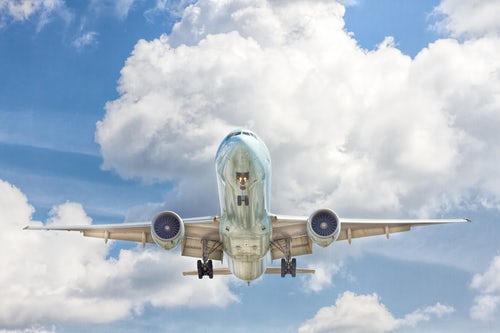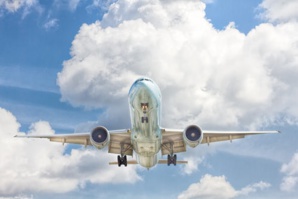Dailycsr.com – 22 March 2019 – Boeing has revealed that it will provide an option to “airlines and operators” for using bio-fuel to power “their new commercial jet” to fly home. This effort is an attempt to promote the usage of “sustainable aviation fuels”, as it will contribute in reducing as much as eighty percent of emissions, besides it is also in line with the industry wide drive to “protect the environment”.
The option of bio-fuel can be availed by Boeing’s customers taking new airplanes delivery at its delivery centres in “Seattle and Everett, Wash”. In fact, there are plans of testing bio-fuel on some test flights which are likely to take place at Boeing’s “Boeing Field facility”. Moreover, the company is also working towards bringing the “same option” for its customers at its “South Carolina Delivery Center”.
Boeing Commercial Airplanes’ Vice-President of Strategy, Sheila Remes said:
“This is another step in our decade-long journey to encourage the adoption of sustainable fuels and help commercial aviation earn its license to keep growing. We have great customers such as Alaska Airlines that have made good progress in adopting the use of biofuels. We hope this new option will make it easier for them and others to demonstrate our industry’s commitment to reduce carbon emissions.”
The first one to participate in this programme is the Alaska Airlines, which is going to blend the use of bio-fuel manufactured by “World Energy” with the “traditional fuel” in its “three Boeing 737 MAX airplanes” which are scheduled to be delivered this year. The External Relations’ Vice President, Diana Birkett Rakow said:
“Alaska takes seriously the responsibility to deliver for all those who depend on us—employees, guests, our communities and the environment around us—for the long term. That’s the definition of sustainability. We congratulate our partners at Boeing for operationalizing a drop-in sustainable aviation jet fuel option. We’re excited to not only take advantage of the first biofuel delivery, but to continue working together to advance and scale mainstream adoption of sustainable fuel and other practices to enhance the aviation industry’s ability to do good.”
The World Energy’s refinery at Paramount, California produces the bio-fuel, which marks the first ever facility in the world to do so on a commercial scale. The fuel is generated from “agriculture waste” and has been “certified for commercial use”. In fact, as mentioned earlier, this fuel can be blended with “traditional jet fuel” without any further modification in aircraft’s “engines or fueling infrastructure”.
While, the chief commercial officer at World Energy, Bryan Sherbacow added:
“World Energy is here to serve any organization committed to leading the shift toward a low-carbon future. Companies such as Boeing understand their obligation to the communities they serve and have taken meaningful action to transition to cleaner energy and reduce their carbon footprint. Our job is to manage the low-carbon fuel supply chain to provide the product these leaders need to efficiently operate and drive positive change.”
Through tests, rigorous reviews and research work Boeing has been fostering the bio-fuel development in the industry ever since the year of 2008. In this journey it has sought out collaborations from “other airframe and engine manufacturers and aviation stakeholders”, while EPIC Fuels have shown their support towards Boeing, which will be shipping the bio-fuel to its Washington state’s delivery centres.
Furthermore, Boeing also informed that:
“Boeing has worked with partners across the globe to develop sustainable biofuel supplies that can be scaled and priced competitively with traditional jet fuel. Projects have used feedstocks such as forestry and agriculture waste, Brazilian sugarcane, and plants irrigated by coastal seawater in the United Arab Emirates”.
References:
boeing.mediaroom.com
The option of bio-fuel can be availed by Boeing’s customers taking new airplanes delivery at its delivery centres in “Seattle and Everett, Wash”. In fact, there are plans of testing bio-fuel on some test flights which are likely to take place at Boeing’s “Boeing Field facility”. Moreover, the company is also working towards bringing the “same option” for its customers at its “South Carolina Delivery Center”.
Boeing Commercial Airplanes’ Vice-President of Strategy, Sheila Remes said:
“This is another step in our decade-long journey to encourage the adoption of sustainable fuels and help commercial aviation earn its license to keep growing. We have great customers such as Alaska Airlines that have made good progress in adopting the use of biofuels. We hope this new option will make it easier for them and others to demonstrate our industry’s commitment to reduce carbon emissions.”
The first one to participate in this programme is the Alaska Airlines, which is going to blend the use of bio-fuel manufactured by “World Energy” with the “traditional fuel” in its “three Boeing 737 MAX airplanes” which are scheduled to be delivered this year. The External Relations’ Vice President, Diana Birkett Rakow said:
“Alaska takes seriously the responsibility to deliver for all those who depend on us—employees, guests, our communities and the environment around us—for the long term. That’s the definition of sustainability. We congratulate our partners at Boeing for operationalizing a drop-in sustainable aviation jet fuel option. We’re excited to not only take advantage of the first biofuel delivery, but to continue working together to advance and scale mainstream adoption of sustainable fuel and other practices to enhance the aviation industry’s ability to do good.”
The World Energy’s refinery at Paramount, California produces the bio-fuel, which marks the first ever facility in the world to do so on a commercial scale. The fuel is generated from “agriculture waste” and has been “certified for commercial use”. In fact, as mentioned earlier, this fuel can be blended with “traditional jet fuel” without any further modification in aircraft’s “engines or fueling infrastructure”.
While, the chief commercial officer at World Energy, Bryan Sherbacow added:
“World Energy is here to serve any organization committed to leading the shift toward a low-carbon future. Companies such as Boeing understand their obligation to the communities they serve and have taken meaningful action to transition to cleaner energy and reduce their carbon footprint. Our job is to manage the low-carbon fuel supply chain to provide the product these leaders need to efficiently operate and drive positive change.”
Through tests, rigorous reviews and research work Boeing has been fostering the bio-fuel development in the industry ever since the year of 2008. In this journey it has sought out collaborations from “other airframe and engine manufacturers and aviation stakeholders”, while EPIC Fuels have shown their support towards Boeing, which will be shipping the bio-fuel to its Washington state’s delivery centres.
Furthermore, Boeing also informed that:
“Boeing has worked with partners across the globe to develop sustainable biofuel supplies that can be scaled and priced competitively with traditional jet fuel. Projects have used feedstocks such as forestry and agriculture waste, Brazilian sugarcane, and plants irrigated by coastal seawater in the United Arab Emirates”.
References:
boeing.mediaroom.com


 Boeing’s New Aircrafts To Fly With Bio-Fuel
Boeing’s New Aircrafts To Fly With Bio-Fuel





 Companies
Companies